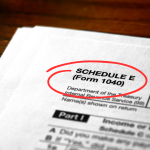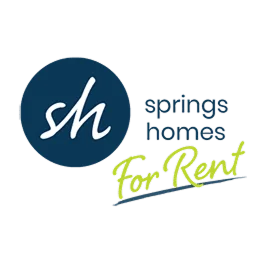Understanding HOA Fees
Before diving into the tax aspects, it's important to understand what HOA fees are and what they cover:
- Definition: HOA fees are regular payments from property owners within a planned community or condominium complex to maintain shared spaces and services.
- Purpose: These fees fund the maintenance of common areas, repairs, improvements, and essential community services.
- Covered expenses: HOA fees typically cover:
- Maintenance of common areas (landscaping, snow removal, etc.)
- Utilities for common areas
- Insurance for common areas
- Upkeep of shared amenities (pools, fitness centers, etc.)
- Security services
- Staff salaries (property managers, maintenance workers)
- Contributions to a reserve fund for future major expenses
HOA Fees as Tax Deductions for Rental Properties
The general rule is that HOA fees are tax-deductible for rental properties. Here's what you need to know:- Deductibility: The IRS classifies HOA fees as legitimate rental expenses, deducting them from your rental income.
- Business expense: The IRS views rental activities as business purposes.
- Deductible expenses: Along with other rental expenses like mortgage interest, property taxes, and maintenance costs, hoa fees tax deductible can help reduce your overall taxable rental income.
- Reporting: HOA fee deductions and other rental income and expenses are typically reported on Schedule E of your Form 1040 tax return.
Conditions for Deductibility
While HOA fees are generally deductible, they need to meet certain conditions:- Rental use: While this one seems obvious, you'd be surprised. The property must be used for rental purposes, either full-time or part-time.
- Ordinary and necessary: The fees must be considered ordinary and necessary for your rental business.
- Timing: HOA fees are typically deductible in the year they are paid, not when they were assessed.
- Special assessments: Regular HOA fees are fully deductible, but special assessments for significant improvements must be capitalized and depreciated over time.
How to Claim the Deduction
To claim your HOA fee deduction:
- Use Schedule E: Report HOA fees on Schedule E (Form 1040), Supplemental Income and Loss. IRS Schedule E (Form 1040) is a tax form that reports income or loss from rental real estate and other sources like royalties, partnerships, and trusts. It's vital for rental property owners as it's where they report rental income and itemize expenses, including HOA fees. This form is essential for rental property owners to properly report income and maximize eligible deductions.
- Documentation: Keep detailed records of all HOA fee payments, including statements and proof of payment.
- Reporting process: List your rental income at the top of Schedule E, then include HOA fees in the expenses section, typically under "Other" expenses.
- Multiple properties: Fill out a separate Schedule E for each rental property.
Special Considerations
Several situations require special attention when deducting HOA fees:- Partial-year rentals: If you rent your property for only part of the year, prorate your HOA fee deductions accordingly. For example, if annual HOA fees are $2,400 and you rented the property for six months, the deductible would be $1,200.
- Mixed-use properties: For properties serving as a primary residence and a rental, allocate HOA fees between personal expenses and rental use. The allocation is typically based on the days used for each purpose.
- Special assessments: The tax treatment of special assessments depends on their nature:
- Repairs and maintenance: Generally fully deductible in the year paid.
- Capital improvements: These may need to be capitalized and depreciated over time.
Benefits of Deducting HOA Fees
HOA fee deductions can alleviate your overall tax burden by reducing your taxable rental income and providing financial relief. Improved cash flow: Tax savings from HOA fee deductions can increase your net rental income. The ability to deduct HOA fees can make properties with such fees more competitive and potentially more profitable, helping create optimism and confidence in your investment.Other Tax Advantages of Rental Properties
While HOA fees are an essential deduction, they're just one of many tax advantages available to rental property owners:- Mortgage interest: Interest paid on your rental property mortgage is also deductible.
- Property taxes: Any real estate property taxes paid on your rental property are fully deductible.
- Insurance premiums: Premiums for rental property insurance are deductible expenses.
- Repairs and maintenance: The costs of repairs to keep your property in good condition, sometimes known as operating expenses, are deductible in the year they are incurred.
- Travel expenses: Expenses for property management or maintenance-related travel are deductible.
- Professional and legal services: Fees paid to attorneys, property managers, or accountants related to your rental property are deductible.
- Utilities: These costs are deductible if you pay utilities for your rental property.
- Advertising: Costs for advertising your rental property are deductible.
- Depreciation: Depreciation allows you to deduct a portion of your property's value each year over a set recovery period (27.5 years for residential rental properties).
Potential Drawbacks and Considerations
While the tax benefits of deducting HOA fees are significant, there are some potential drawbacks to consider:- Increased complexity in tax filing: Rental property taxes, including HOA fee deductions, can complicate tax returns.
- HOA restrictions on rentals: Some HOAs have rules restricting or prohibiting rentals, which could affect your ability to use the property as a rental.
- Need for meticulous record-keeping: Detailed records of all expenses, including HOA fees, must be maintained for accurate tax reporting and potential audits.
Tips for Maximizing Tax Benefits
To make the most of HOA fee deductions and other rental property tax advantages:- Consult a tax professional: Expert guidance can help you navigate complex tax laws and maximize deductions.
- Stay informed about tax law changes: Regularly update your rental property tax rules knowledge.
- Maintain detailed records: Develop a system for tracking all taxable income and expenses related to your rental property, including HOA fees.
- Consider using digital tools: Accounting software or apps designed for rental property management can streamline record-keeping.
- Separate accounts: Use a separate bank account and credit card for your rental property to simplify expense tracking.

